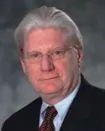On July 27, the National Labor Relations Board issued a press release announcing that it had hired a new "Lead Technology Counsel." This is a new position at the Board and a signal that the Obama Board is intent on making the cases before it more complex and expensive for employers to defend.
The office of the Technology Counsel will be expected to develop Board guidelines and training programs for agents and lawyers with regard to e-discovery and litigation holds. E-discovery is the term being used in civil litigation to describe the retrieval and exchange of documents and electronically stored information, such as emails, during the investigation, discovery and litigation of particular matters. "Litigation hold" is the term used to describe the process by which a prospective or actual litigant is required to preserve all documents, including those stored electronically, that may be relevant to a matter about which the prospective litigant has a reasonable belief may become the subject of litigation or is in actual litigation.
Employers that have been the targets of federal or state investigations or parties to a civil rights complaints or other employment charges or lawsuits know what e-discovery and litigation holds has done to explode their costs of defense. In a recent "routine" employment discrimination lawsuit, for example, the reported cost of e-discovery and litigation hold alone approached $750,000, by the time the cost not only of preserving and retrieving, but also reviewing the nearly 1.5 million documents, most of which were emails, that were identified as possibly relevant to the case.
Our experience to date has been that the Labor Board's agents know very little about e-discovery and rarely, if ever, pursue it in either the investigation or trial of a representation petition or charge. Further, many lawyers defending labor cases before the Board have not been sending litigation hold letters and procedures to their clients when new cases are filed or suspected. All of that is about to come to an end.
The Board's new Lead Technology Counsel (P. Brian See of Seyfarth Shaw) will be expected to, as the Board stated in its press release, "assist Agency attorneys and staff in crafting policies and procedures relating to managing electronic information and litigation holds.
What this means is that Labor Board investigations and trials will now take on all of the trappings of federal litigation, including extensive discovery demands and procedures. What up to now has been a relatively speedy and less costly process will be neither.
Employers that have active Board cases or a reasonable belief that a situation may result in a Labor Board action, either a question of representation or unfair labor practice charge, should issue litigation hold directives to managers and supervisors to preserve all potentially relevant documents, including those store electronically, such as emails. In addition, any scheduled document destruction policy must anticipate and contain features that permit Employers to make exceptions. Going forward, employers must anticipate that the Board's investigating agents and trial lawyers will be issuing sophisticated demands for the production of broad classes of documents that, if ignored or handled poorly, may result in decisive negative inferences.
Clearly, employers should instruct supervisors and managers that electronically stored documents, such as emails, may have to be produced to the Labor Board in the event of a representation or charge case and that conclusions, including those of union animus or interference with the exercise of rights protected by the NLRA, may be made by the Board and a Court based on what one of them may have written. Nothing should ever be preserved or put into an email that the employer would not want to be produced to the Labor Board or Court.
The processing and defending of Labor Board cases has just become more complex and expensive to defend.
This article is for general information and does not include full legal analysis of the matters presented. It should not be construed or relied upon as legal advice or legal opinion on any specific facts or circumstances. The description of the results of any specific case or transaction contained herein does not mean or suggest that similar results can or could be obtained in any other matter. Each legal matter should be considered to be unique and subject to varying results. The invitation to contact the authors or attorneys in our firm is not a solicitation to provide professional services and should not be construed as a statement as to any availability to perform legal services in any jurisdiction in which such attorney is not permitted to practice.
Duane Morris LLP, a full-service law firm with more than 700 attorneys in 24 offices in the United States and internationally, offers innovative solutions to the legal and business challenges presented by today's evolving global markets. Duane Morris LLP, a full-service law firm with more than 700 attorneys in 24 offices in the United States and internationally, offers innovative solutions to the legal and business challenges presented by today's evolving global markets. The Duane Morris Institute provides training workshops for HR professionals, in-house counsel, benefits administrators and senior managers.

